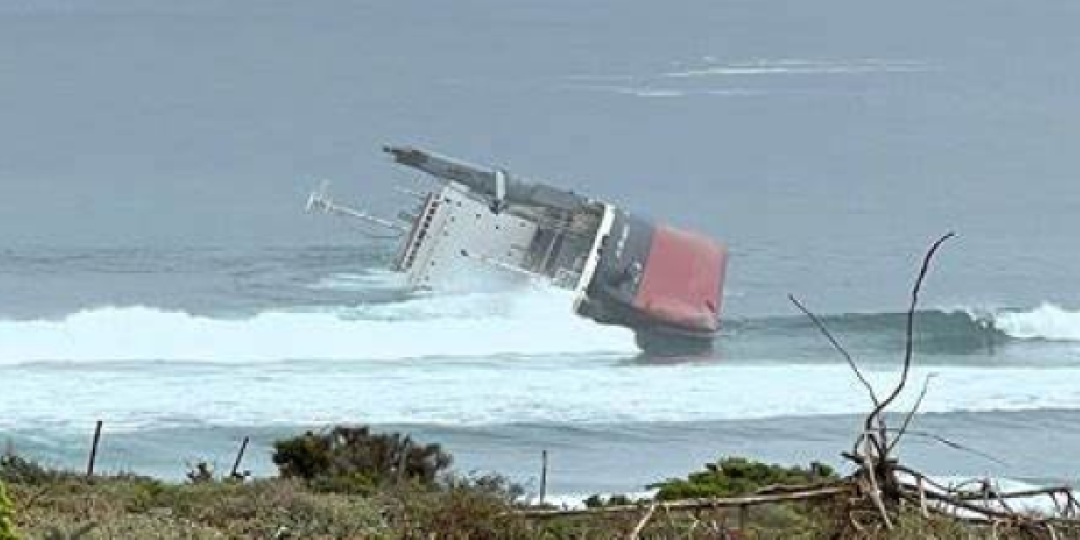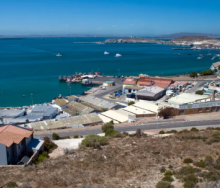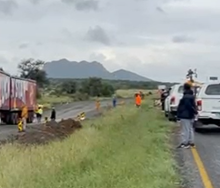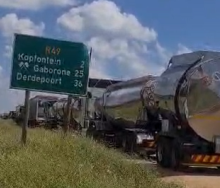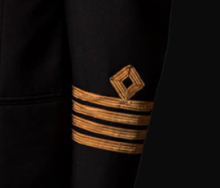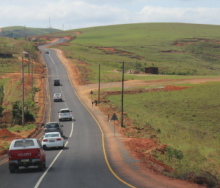Mere days after a fishing trawler caught fire off the Cape coast on Sunday morning, causing 20 crew members to abandon ship fearing for their lives, the maritime industry is reported to be experiencing a significant increase in the number of cargo stowage failures and container losses.
More importantly, the elevated risk to onboard cargo and potential for box-overboard incidents is directly related to the increase in east-west sailings around Cape Town as opposed to through the Suez Canal.
According to Norwegian protection and indemnity Club, Gard, the threat of Houthi attacks south of the Suez continues to divert traffic away from the much shorter waterway linking the Mediterranean with the Red Sea.
But the longer leg around Africa isn’t without risk, especially off the Cape Coast where tempestuous weather tends to violently interfere with voyages.
Gard reports that the Atlantic Ocean region around the Cape is notorious for its harsh weather, which is marred by swells, rogue waves, and strong winds, thus making it difficult to navigate.
It has also become apparent that South Africa’s coastline further east of Table Bay appears to have become more prone to inclement weather conditions, a phenomenon climate experts attribute to changing weather patterns.
The weekly Cargo Movement Update compiled by the South African Association of Freight Forwarders and Business Unity SA, is consistently reporting how bad weather disrupts port operations by causing vessel ranging and wind-bound conditions.
The winter months of the Southern hemisphere brought several problems like cargo lift damage, defects and injury to crew, Gard has found.
The influence of waves on vessels has resulted in substantial risk to seafarers, revealing the harsh conditions in which crew members have to work.
Cargo stowage failures are not only about cargo loss, Gard points out.
Cargo that is not tightly secured can move across the ship, causing the ship to list and diminish its stability.
The most common concerns about fires were reported in cases with chemicals and lithium-ion batteries – a great threat to safety, Gard says.
When cargo falls overboard it creates a serious hazard for other ships and becomes a part of marine pollution.
Usually, lost container debris finds its way to the beach and expensive environmental clean-up operations have become a recurrent problem for shorelines.
The South African Maritime Safety Authority (Samsa) reported that, from July to August 2024, it had had about 200 overboard container cases.
The global cargo ship loss figure was heartening last year, recording a reduction to 221 lost containers from an estimated 1 000 per year.
Still, the frequency of the incidents that took place in South African waters signifies a probable reversal of this trend.
The increased movement of ships around the Cape presented additional burdens to transportation operations, said Gard.
Limited space has led logistics operators to come up with desperate measures to load containers on bulkers or to increase stacking heights, resulting in enhanced risk.
Moreover, in the event of a major accident, vessels in distress face limited options for assistance.
Shipping operators should enhance the procedures outlined in their safety management systems to reduce risks associated with severe weather, Gard advises.
Crews are urged to perform lashing checks early in their voyages, ensuring that these checks are conducted safely.
Another operational risk is engine blackouts due to lubrication oil displacement in rough seas, which requires immediate attention.
As the maritime industry strives to enhance safety, increased collaboration is crucial. Initiatives like the Marin TopTier project and upcoming regulations under the SOLAS (International Convention for the Safety of Life at Sea) convention, which will require the reporting of lost containers, demonstrate efforts to tackle these issues.
However, with more vessels choosing to reroute via the Cape of Good Hope, operators need to stay alert to promote safer stowage practices and better prepare for challenging weather conditions, Gard says.
